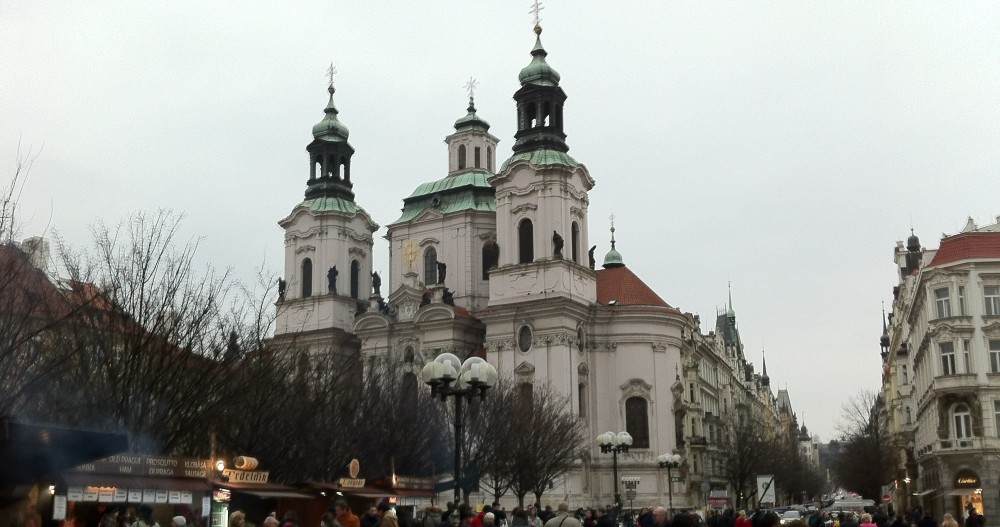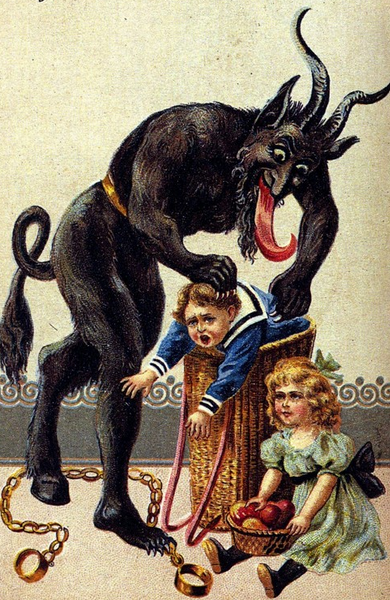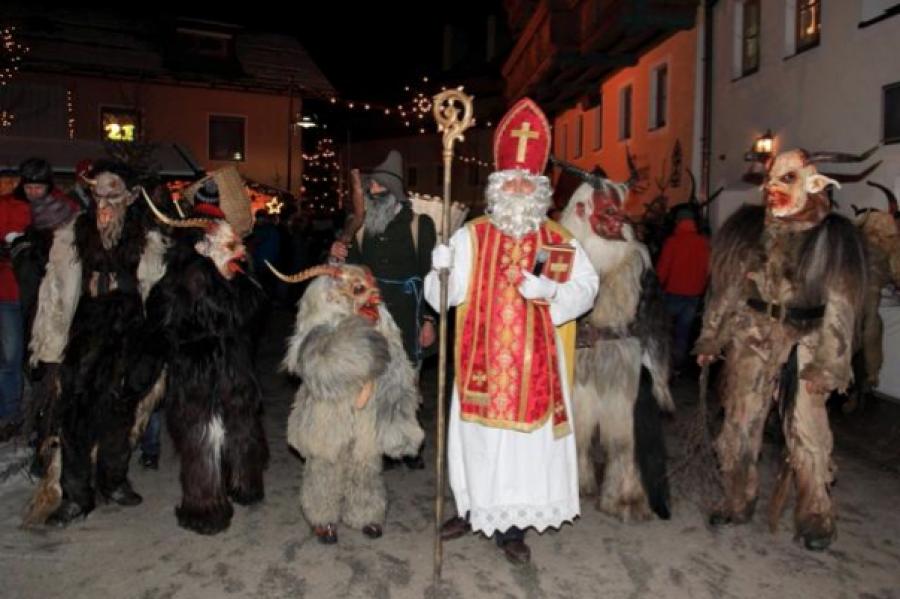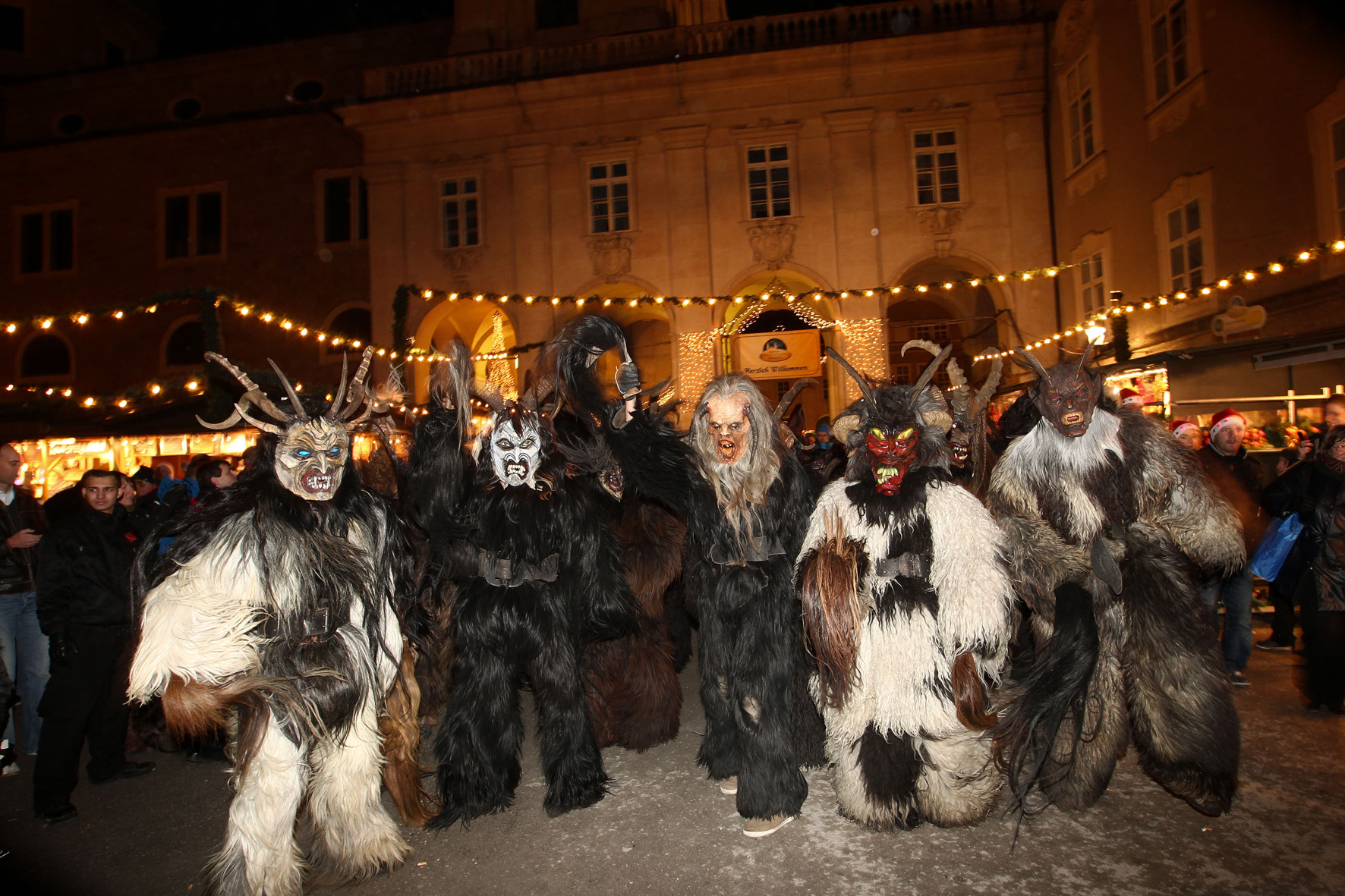Traditionally on December 5th and 6th, St. Nicholas walks from house to house in the cities and villages of Alpine and Central Europe to admonish and laud young and old. In the Alpine regions, he is accompanied by a Krampus (an evil creature, a devil of sorts), who is going to punish the bad children and adults on St. Nicholas′ command. For the honest children he normally has little presents. In Prague and the Czech-speaking areas of Central Europe, the čert (a clearly demonic character) accompanies St. Nicholas.
In Come Hell or High Water, both St. Nicholas and his čert appear:
“It was commonly supposed [in 1356] that St. Nicholas, as he made his rounds bestowing gifts on children and the needy, was accompanied by both a tar-covered čert, a pitch-black devil, as well as a bright and glorious andel, an angel of light, who each argued for or against the worthiness of the recipient of the saint’s benefactions. The čert was always ready, at the slightest nod from the saint, to carry away the unworthy beggar or misbehaving child and–throughout the year–parents could always warn their children that they might be carried away by the čert….”
St. Nicholas himself is a Christian figure, the fourth century bishop of Myra. As son of a well-situated family, he started to help poor people who lived in deep poverty. He was supposed to have miraculous vigor and so he became patron of the seamen, children and poor people. (See a previous post about St. Nicholas and his care for the poor here.) In most modern versions of the St. Nicholas story, he is accompanied by a monster or servant (the Dutch describe his assistant as Black Peter) who punishes the bad children while Nicholas himself rewards the well-behaved children.
The figure of the Krampus is based on pre-Christian custom. The Krampusse not only punish the bad children but had the function at one time of driving out the winter devils and blizzard sprites. Originally the custom of the Krampus was spread over all of Austria but was forbidden by the Catholic Church during the Inquisition. It was prohibited by death to masquerade as a devil or an evil creature and so this custom only survived in some remote, inaccessible, regions of the Alps from where it slowly spread back across the western parts of Austria again. Today the Krampusse revels are especially popular in Salzburg. As many times as I have been to Salzburg, I have never been there during Krampusse-time; I would dearly love to be there to see the processions and parades of costumed characters in the streets.



